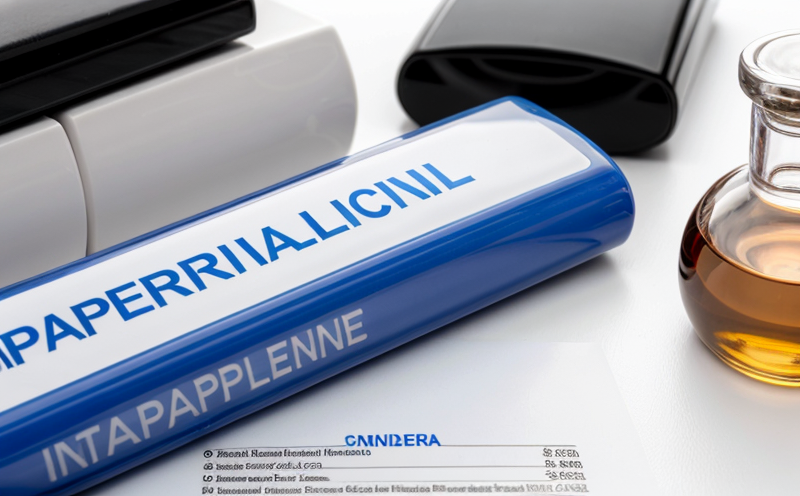
-
Pharmaceutical Compliance-
Regulatory Compliance in Pharmaceuticals-
International Pharmaceutical Compliance Standards
We provide comprehensive solutions designed to help our clients mitigate risks, enhance performance, and excel in key areas such as quality, health & safety, environmental sustainability, and social responsibility.
Discover
For many years, our organization has been operating successfully, boasting modern laboratories that meet international standards. These laboratories are equipped with the latest technology devices and equipment, and we have built a strong team of experienced and trained personnel to operate them.
DiscoverWelcome to Eurolab, your partner in pioneering solutions that encompass every facet of life. We are committed to delivering comprehensive Assurance, Testing, Inspection, and Certification services, empowering our global clientele with the ultimate confidence in their products and processes.
Discover
-
Pharmaceutical Compliance-
Regulatory Compliance in Pharmaceuticals-
International Pharmaceutical Compliance StandardsInternational Pharmaceutical Compliance Standards: Ensuring Global Regulatory Conformity
The pharmaceutical industry is a highly regulated sector that operates under strict guidelines to ensure the safety and efficacy of medications. As a result, international pharmaceutical compliance standards have become increasingly important for companies operating globally. These standards require adherence to regulations in multiple countries, which can be complex and time-consuming to navigate.
Regulatory bodies such as the US FDA (Food and Drug Administration), EU EMA (European Medicines Agency), and WHO (World Health Organization) play a crucial role in establishing and enforcing international pharmaceutical compliance standards. Companies must comply with these regulations to avoid non-compliance penalties, reputational damage, and even business closure.
One of the primary reasons for strict regulation is patient safety. The consequences of medication contamination or incorrect dosing can be severe, and regulatory bodies take steps to prevent such incidents from occurring. Pharmaceutical companies are responsible for ensuring that their products meet international standards for quality, safety, and efficacy.
Key International Pharmaceutical Compliance Standards:
Facilities must be designed to prevent contamination and maintain product purity
Trained personnel should handle and package products to avoid errors
Equipment must be regularly maintained and calibrated to ensure accuracy
Trials must adhere to established protocols, including informed consent procedures
Data collection and analysis should follow standard methodologies
Researchers should maintain accurate records of trial activities
Maintaining compliance with these standards requires significant resources, including training personnel, implementing quality control measures, and investing in regulatory affairs.
Implementation of International Pharmaceutical Compliance Standards:
Pharmaceutical companies must demonstrate their commitment to international pharmaceutical compliance standards through a variety of methods. Some key steps include:

NEBS and Telecommunication Standards
Network Equipment Building System (NEBS) and Telecommunication Standards The Network Equipment Bu...

Cosmetic Product Testing
The Complex World of Cosmetic Product Testing The cosmetics industry is a multi-billion-dollar ma...

Pharmaceutical Compliance
Pharmaceutical compliance refers to the adherence of pharmaceutical companies and organizations to l...

Construction and Engineering Compliance
Construction and Engineering Compliance: Ensuring Safety, Quality, and Regulatory Adherence In the ...

Pressure Vessels and Installations Testing
Pressure Vessels and Installations Testing Pressure vessels are a critical component of various ind...

Battery Testing and Safety
Battery Testing and Safety: A Comprehensive Guide As technology continues to advance, battery-power...

Consumer Product Safety
Consumer Product Safety: Protecting Consumers from Harmful Products As a consumer, you have the rig...

Transportation and Logistics Certification
Transportation and Logistics Certification: A Comprehensive Guide The transportation and logistics ...

IT and Data Center Certification
IT and Data Center Certification: Understanding the Importance and Benefits The field of Informatio...

Military Equipment Standards
Military Equipment Standards: Ensuring Effectiveness and Safety The use of military equipment is a ...

Chemical Safety and Certification
Chemical safety and certification are critical in ensuring the safe management of products and proce...

Automotive Compliance and Certification
Automotive Compliance and Certification: Ensuring Safety and Efficiency The automotive industry is ...

Trade and Government Regulations
Trade and government regulations play a vital role in shaping the global economy. These regulations ...

Fire Safety and Prevention Standards
Fire Safety and Prevention Standards: Protecting Lives and Property Fire safety and prevention stan...

MDR Testing and Compliance
MDR Testing and Compliance: A Comprehensive Guide The Medical Device Regulation (MDR) is a comprehe...

Product and Retail Standards
Product and Retail Standards: Ensuring Quality and Safety for Consumers In todays competitive marke...

Lighting and Optical Device Testing
Lighting and Optical Device Testing: Ensuring Performance and Safety Lighting and optical devices a...

Industrial Equipment Certification
Industrial equipment certification is a critical process that ensures industrial equipment meets spe...

Agricultural Equipment Certification
Agricultural equipment certification is a process that ensures agricultural machinery meets specific...

Energy and Sustainability Standards
In today’s rapidly evolving world, businesses face increasing pressure to meet global energy a...

Healthcare and Medical Devices
The Evolution of Healthcare and Medical Devices: Trends, Innovations, and Challenges The healthcare...

Electrical and Electromagnetic Testing
Electrical and Electromagnetic Testing: A Comprehensive Guide Introduction Electrical and electrom...

Renewable Energy Testing and Standards
Renewable Energy Testing and Standards: Ensuring a Sustainable Future The world is rapidly transiti...

Environmental Simulation Testing
Environmental Simulation Testing: A Comprehensive Guide In todays world, where technology is rapidl...

Aviation and Aerospace Testing
Aviation and Aerospace Testing: Ensuring Safety and Efficiency The aviation and aerospace industr...

Hospitality and Tourism Certification
Hospitality and Tourism Certification: Unlocking Opportunities in the Industry The hospitality and ...

Railway Industry Compliance
Railway Industry Compliance: Ensuring Safety and Efficiency The railway industry is a critical comp...

Food Safety and Testing
Food Safety and Testing: Ensuring the Quality of Our Food As consumers, we expect our food to be sa...

Electromechanical Safety Certification
Electromechanical Safety Certification: Ensuring Compliance and Protecting Lives In todays intercon...

Environmental Impact Assessment
Environmental Impact Assessment: A Comprehensive Guide Environmental Impact Assessment (EIA) is a c...